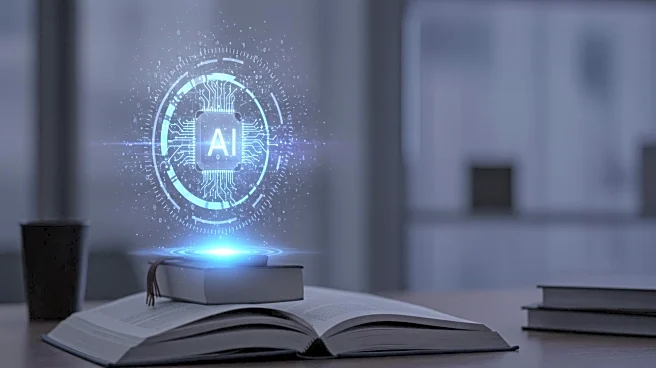What is the story about?
What's Happening?
Grammarly has launched a suite of AI agents designed to assist both students and educators in the writing process. These agents are integrated into Grammarly's new AI-native writing surface, available at no extra cost for both Free and Pro users. The tools aim to enhance student capabilities without compromising their learning, according to Jenny Maxwell, Head of Grammarly for Education. Among the new features is an AI grader agent that provides feedback based on course details and publicly available information about instructors, offering tailored writing recommendations and grade predictions. Other agents include a reader reactions agent, proofreader agent, paraphrase agent, citation finder agent, and expert review agent, each designed to improve various aspects of writing. For educators, Grammarly has introduced a plagiarism checker and an AI detector agent to assess the likelihood of text being AI-generated.
Why It's Important?
The introduction of these AI agents by Grammarly represents a significant advancement in educational technology, potentially transforming how students approach writing and how educators evaluate submissions. By providing tools that predict grades and offer detailed feedback, students can refine their work before submission, potentially improving academic performance. For educators, the plagiarism checker and AI detector agents offer robust solutions for maintaining academic integrity. This development underscores the growing importance of AI literacy in education, preparing students for a future where AI will play a crucial role in the workplace. The tools also highlight the balance between leveraging AI for educational enhancement while ensuring students develop essential skills independently.
What's Next?
Grammarly plans to extend the availability of these AI agents to Enterprise and Education users later this year, along with additional agents to be announced. This expansion will likely increase the adoption of AI tools in educational settings, prompting institutions to integrate AI literacy into their curricula. As these tools become more widespread, educators and students may need to adapt to new methods of teaching and learning, potentially reshaping educational practices. Stakeholders in education will be watching closely to assess the impact of these tools on student outcomes and academic integrity.
Beyond the Headlines
The deployment of AI agents in education raises ethical considerations regarding the reliance on technology for learning and assessment. While these tools offer significant benefits, they also pose questions about the potential for over-dependence on AI, which could undermine the development of critical thinking and writing skills. Additionally, the use of AI in detecting plagiarism and AI-generated text may lead to debates about privacy and the extent to which student work is monitored. As AI continues to integrate into educational systems, ongoing discussions about its role and limitations will be essential.


















